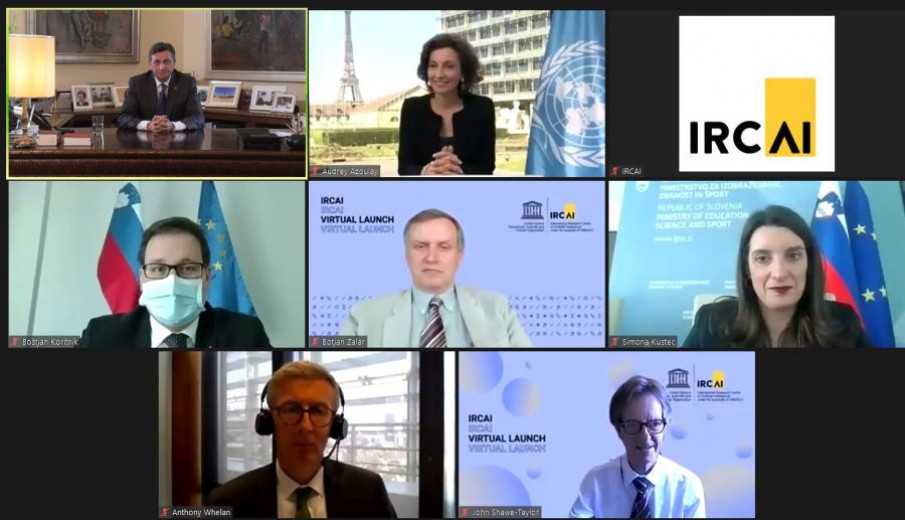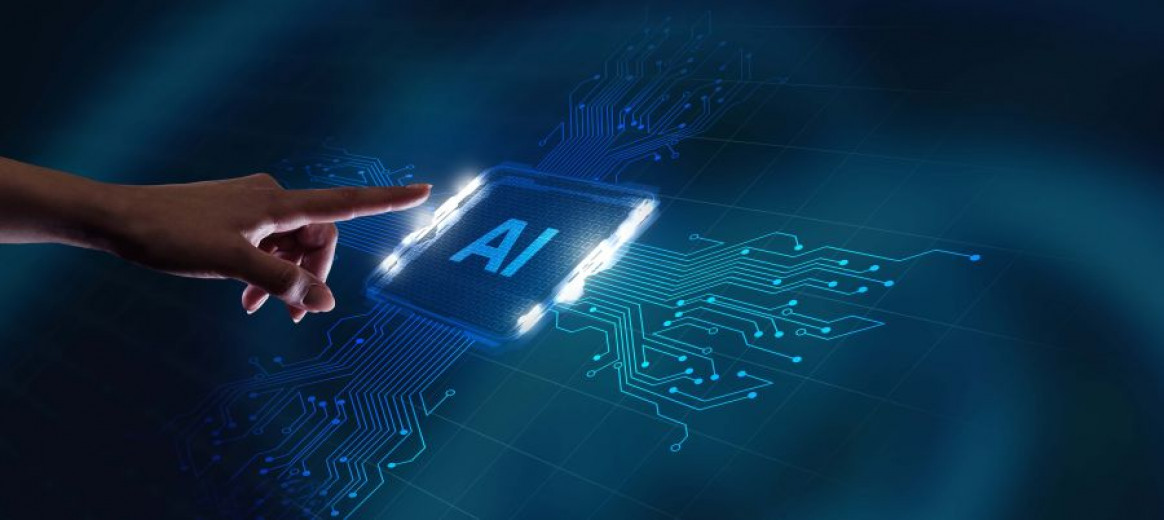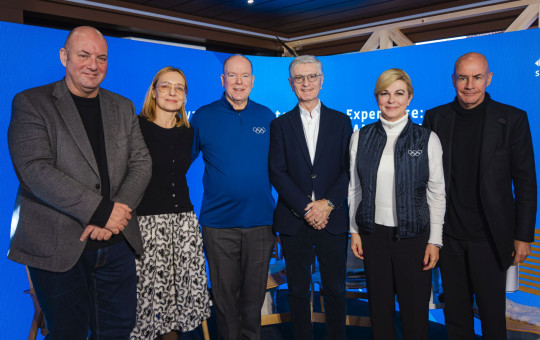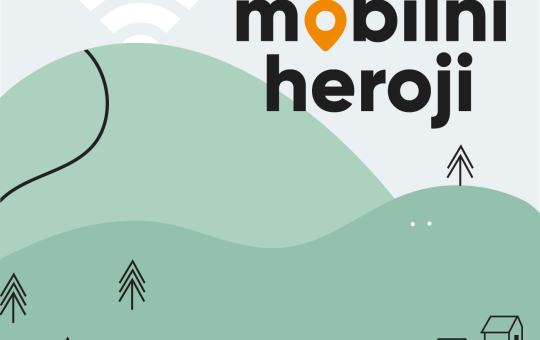Date: 27. May 2022
Time to read: 3 min
Following the official establishment of the International Research Centre on Artificial Intelligence under the auspices of UNESCO (IRCAI) in October 2020, the Centre has established a dialogue to promote research excellence and multi-stakeholder discussion at the intersection of artificial intelligence and sustainable development. The programs developed within the first six months of its establishment were presented at the official launch event, with a roadmap for work across the Slovenian Presidency.
A launch event for IRCAI, which was founded by the Government of the Republic of Slovenia and is based at the Jožef Stefan Institute, was held on 29-30 March. Over 1100 registered individuals from 123 countries attended and were addressed by esteemed speakers on the first day of the event.
The aim of the event was to present IRCAI’s work on AI and sustainable development to relevant stakeholders and the public. Synergies were established between IRCAI’s strategic goals and the main objectives of the Slovenian Presidency, with a clear understanding of the potential and with concrete plans for creating a global network of excellence in the area of AI and sustainable development.
The representative of the European Commission Anthony Whelan, Digital Policy Adviser in the cabinet of European Commission President Ursula von der Leyen, noted in his speech at the launch that “it is indeed a nice coincidence that the Slovenian Presidency is preparing to work with such an excellent asset on its doorstep, and we hope that this will also serve as a flagship for international efforts”. Other speakers also pointed out the importance of having artificial intelligence at the heart of Slovenia’s Presidency.
Since IRCAI was established in Slovenia with the support of the Slovenian government and UNESCO, the Slovenian Presidency provides an opportunity to create an active agenda for the use of AI in sustainable development. The goal of IRCAI in the activities of the Presidency also includes the formation of a network that will become a legacy that can be further developed with the French Presidency in the spirit of collaboration and building an international agenda for European AI and sustainable development.
-
 Screen grab of speakers at the opening: the President of the Republic of Slovenia, Mr Borut Pahor, the Director General of the UNESCO, Ms Audrey Azoulay, the Minister of Education, Science and Sport of Slovenia, Prof Simona Kustec, the Minister of Public Administration of Slovenia, Mr Boštjan Koritnik, the Director of the Jožef Stefan Institute Prof. Boštjan Zalar, the Digital Policy Adviser in the cabinet of EC President Ursula von der Leyen, the Director of IRCAI, Prof. John Shawe-Taylor.
Screen grab of speakers at the opening: the President of the Republic of Slovenia, Mr Borut Pahor, the Director General of the UNESCO, Ms Audrey Azoulay, the Minister of Education, Science and Sport of Slovenia, Prof Simona Kustec, the Minister of Public Administration of Slovenia, Mr Boštjan Koritnik, the Director of the Jožef Stefan Institute Prof. Boštjan Zalar, the Digital Policy Adviser in the cabinet of EC President Ursula von der Leyen, the Director of IRCAI, Prof. John Shawe-Taylor.
-
 Since IRCAI was established in Slovenia with the support of the Slovenian government and UNESCO, the Slovenian Presidency provides an opportunity to create an active agenda for the use of AI in sustainable development.
Since IRCAI was established in Slovenia with the support of the Slovenian government and UNESCO, the Slovenian Presidency provides an opportunity to create an active agenda for the use of AI in sustainable development.
Supporting the Slovenian Government in capacity building activities that drive policy innovation in building research collaborations
IRCAI and the Ministry of Foreign Affairs of the Republic of Slovenia have jointly designed an International Event Series of 10 events presenting government and research perspectives on AI and sustainable development around the world, in Abu Dhabi, Brussels, Ottawa, Tel Aviv, Geneva, Bucharest, Tokyo, Paris with the OECD and Berlin, and the main event, Digihack, in Ljubljana.
In order to motivate various stakeholders and facilitate research and development of solutions in the field of sustainable development with the use of AI tools, the call for an IRCAI International AI Award will be announced at these events as a pan-European and international award, launched by the Slovenian Presidency and to be given annually.
Partnerships for AI with Slovenia
IRCAI, with its engagement and discussions with relevant Directorates-General of the European Commission and active collaboration with international organisations such as UNESCO, WIPO, OECD, CAHAI, ITU and others, is addressing priorities for future collaboration, especially in R&D areas where partners have a strong common interest, particularly with a focus on sustainability, bringing complementary challenges, regulatory and/or cultural considerations, or expertise to the partnerships, by promoting research and development in AI, with a focus on solving challenging technical issues, and the aim of strengthening bilateral cooperation in science and technology.
Through IRCAI, a collaborative mechanism for basic and early-stage research and development collaboration on cross-continental sustainability problems will be established among the five regional groups of United Nations, to enable AI innovation and information-sharing on regulatory frameworks and scientific endeavours, and thus remove barriers to innovation while gaining public trust.
From Slovenia to Europe and beyond
IRCAI, although founded in Slovenia and active in research activities in the EU, is expanding its international collaboration in the field of AI.
IRCAI organised a sub-regional consultation event for the UNESCO Recommendation on the Ethics of Artificial Intelligence, and has produced an analysis of all regional consultations. With these findings, it aims to become an implementing body of the Recommendation to promote the development and use of AI. This includes pooling efforts to jointly develop and use AI, as well as building capacity, knowledge repositories, communities of practice, collaborative research on AI, and solidarity among all countries regardless of their level of AI development, as well as establishing regional and international funding mechanisms to promote and strengthen AI and identifying those mechanisms, including partnerships, that can support international, regional, and national efforts in this regard.





